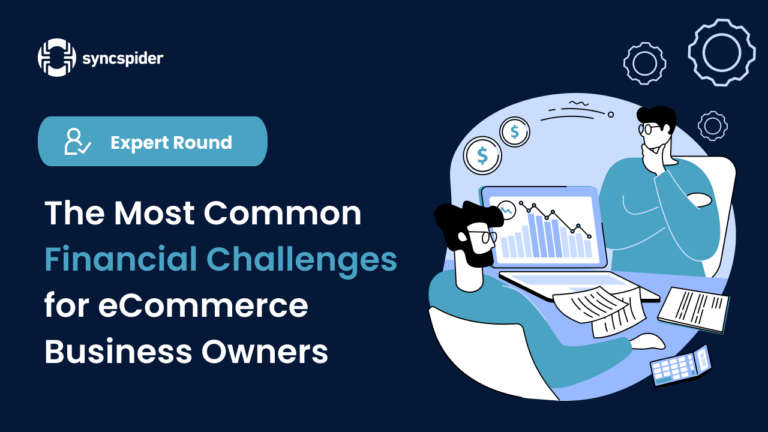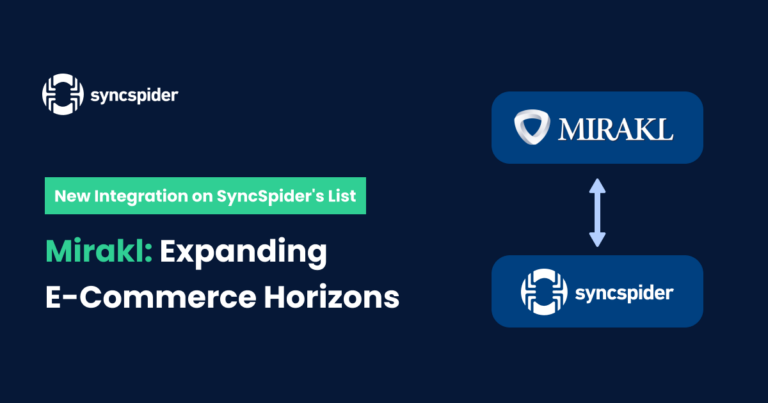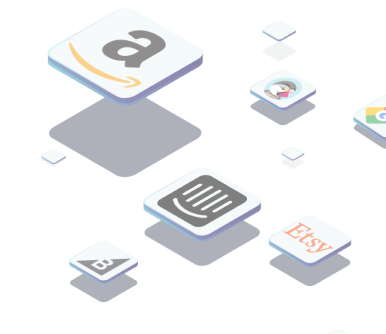It’s 2024, and you’re sick and tired of working for someone. You’re tired of your 9-to-5 job, survival mode, and micromanagement. You want to be your own boss. That’s often the moment when people turn to eCommerce business – why not start selling products or services online? We’re about to start the journey for you and point to the best eCommerce platforms for startups in 2024 – fresh info with insider tips.
Let’s start the journey!
What should you consider when choosing the best eCommerce platform for startups?
I get it. Choosing the best platform for your eCommerce store is difficult, and sometimes, it takes way more time than building it. (I’ve been there, done that.) With so many choices, you can easily be confused and overwhelmed.
Old or New eCommerce Platform Options?
You have established popular eCommerce platforms (with tons of reviews) and new platforms (with insufficient reviews but sound tempting). That’s your first doubt. From my experience, the best way to see if a platform works for you is to try it. So, the advantage is that you can go to the platforms with a free trial (or refund).
Yes, it’s a bit confusing, but remember, what works for me may not be the best choice for you. Therefore, you must check all the platforms and find the most suitable one for your new business.
UI plays a significant role in choosing an ideal eCommerce platform
When choosing a platform for your eCommerce site, don’t let others tell you how good it is. Try it yourself. Why? Sometimes, it depends on how easily you navigate through the platform’s dashboard and how easily you understand it.
The catch is that we all have different brains, which get things differently. What is perfectly clear to me might be confusing for you.
So, enter the platform, check how it looks at first glance, and decide whether you want to try it or not. If, at that first moment, using the platform seems overwhelming, run… it’s not the platform for you.
Price A Critical Factor, But Not the Only One to Consider When Choosing an eCommerce Platform
Now, I understand that we all need to pay attention to price but don’t let the platform’s price be your navigator when choosing it. Sometimes, it’s better to pay more for a reliable platform than pay less and be stuck. In the worst-case scenario, you can look for another platform (which you also have to pay) or hire a developer to fix the platform for you.
So, when it comes to price, I always opt for a free trial (15 days is perfectly fine). If I conclude I can manage the platform and like what I see, I opt for the package that most suits my needs.
Some platforms offer a free plan—but there’s always a catch. Free plans often lack (or offer limited) support, and believe me, you’re going to need that support. Speaking of support…
Hello There! I Need Some Help With…
Yes, no matter how tech-savvy you are, you’re going to ask for support at some point, trust me! Therefore, check how that works (preferably while you’re in a trial period)
I can’t stress enough how important this segment is when you’re opening your own online store. If support is not there for you, you can spend ages trying to figure out what’s wrong with your platform, and it can be some minor thing that you’ve overlooked.
That’s why support is crucial. No support (or limited, like waiting for days or weeks for their reply) – It’s a no-no for me. But if you’re the adventurous type, eager to troubleshoot solo, more power to you, but I would always opt for the platform that offers efficient and unlimited support.
Let’s Hit the Base – The eCommerce Platforms for Your Online Business
After a short intro above, it’s time to check the best eCommerce platforms for startups. And to stay up to date, it’s fresh – for 2024. It’s my list, based on my personal experience and the experience of other users and eCommerce features these platforms provide.
So, let’s start:

#1 Shopify – The First Platform Option for Store that Runs Smoothly
I’ve written a lot about Shopify, and I have to say it’s still one of the best eCommerce platforms in my opinion. I compared it with Ecwid and Etsy, and I have to say it has everything that one startup needs. The best three things about it are:
- It’s User-friendly – Everything is intuitive, and you slide while building your store
- It’s easy to integrate – which is necessary for keeping an eye on your online sales
- It has great support – whenever you’re stuck, there’s a member of their support team to help you.
Now, on the other flip of the coin, there’s
- Price (no free meal) – Yes, it has monthly plans you have to pay, but you have three months, basically free of charge, to kickstart your business.
- Transaction fees (yes, on top of your plan, you pay a transaction fee, which is annoying)

#2 WooCommerce – The Customizable Commerce King for eCommerce Website in WordPress
WooCommerce has been a game-changer for those who tread in the WordPress universe. It’s like turning your WordPress site into an eCommerce powerhouse. The top three perks? Here they are:
- Seamless WordPress Integration: If WordPress is your playground, WooCommerce is the best game in town.
- Flexibility and Customization: Your imagination is the limit – almost any feature can be plugged in or designed.
- Community Support: A vast community of users and developers ready to help.
But, remember:
- Requires WordPress: Without WordPress, WooCommerce isn’t an option.
- Can Be Tech-Heavy: If you’re not tech-savvy, you might find it a bit overwhelming.

#3 BigCommerce – The Feature-Packed eCommerce Solution
BigCommerce stands tall, especially for those who dream big. It’s like the Swiss Army knife of eCommerce platforms – loaded with features. Here’s what makes it shine:
- Robust Out-of-the-Box Features: It’s ready to go with numerous built-in features.
- Scalability: It grows with your business, handling complexity with ease.
- Diverse Payment Gateways: Offers a wide range of payment options.
But keep in mind:
- Complexity: With great features comes greater complexity.
- Costlier for High-Volume Stores: As you grow, so do the costs.

#4 Magento (Adobe Commerce) – The Enterprise Giant for More Complex Business Needs
Magento, especially in its Adobe Commerce avatar, is like the tank of eCommerce platforms – powerful and robust. Ideal for those who aren’t afraid of a little tech. Top benefits include:
- Highly Customizable: Tailor-make your store to your heart’s content.
- Scalability: It’s built to handle large-scale operations.
- Strong SEO Capabilities: Helps your store rank higher in search results.
But, it’s not all roses:
- Requires Technical Know-How: Not for the tech-faint-hearted.
- Higher Costs: More power comes with a higher price tag.

#5 Squarespace – The Right eCommerce Platform for Aesthetic Artisan
Squarespace is like the elegant, stylish boutique of eCommerce platforms – where design meets simplicity. It’s perfect for those who value aesthetics. Its highlights:
- Stunning Templates: Your store will look gorgeous, no doubt.
- User-Friendly: Easy for beginners and design-oriented folks.
- Decent Features Set: Offers a good balance of eCommerce tools.
However:
- Limited Scalability: Not the best for very large stores.
- Fewer Payment Options: Compared to others, the choices are limited.

#6 Wix eCommerce – The Simple Starter for eCommerce Startups
Wix eCommerce is like a friendly neighborhood store – simple, approachable, and just enough for small businesses. It’s great for getting started without fuss. Its best features:
- Ease of Use: Very beginner-friendly.
- Decent Customization: Offers a good range of design options.
- Affordable: Good for those watching their budget.
But, on the downside:
- Limited Advanced Features: Not ideal for complex, large-scale operations.
- Lesser Scalability: Might need to switch as you grow.

#7 Salesforce Commerce Cloud – The Omnichannel Olympian Among eCommerce Platform Options
Salesforce Commerce Cloud is like the high-tech mall of eCommerce platforms – sophisticated, advanced, and omnichannel. It’s for those who think big and multi-channel. Its strengths:
- Omnichannel Capabilities: Unifies in-store and online experiences.
- AI and Analytics: Advanced tools for a smarter store.
- Scalability and Support: Great for growing businesses.
However, be aware:
- Complexity and Cost: It’s a significant investment in both money and learning.
- Overwhelming for Small Startups: Might be too much for a simple store.

#8 PrestaShop – The Open-Source Challenger for Adventures Small Businesses
PrestaShop is like the DIY kit of eCommerce platforms – open-source, customizable, and with a sense of adventure. It’s for those who love to tinker. Its advantages:
- Free to Use: Pay for hosting, but the platform is free.
- Customizable: Make your store as unique as your products.
- Active Community: Helpful forums and resources.
But remember:
- Requires Technical Skill: Not for the non-tech-savvy.
- Additional Costs: Add-ons, themes, and hosting can add up.

#9 Zyro – The New Kid on the Block May Be a Good Choice for Startups
Zyro is the fresh face in the eCommerce neighborhood – straightforward, no-frills, and getting attention for its simplicity. It’s a solid choice for newcomers. Its highlights:
- Affordability: Great for those on a tight budget.
- Ease of Use: Intuitive and user-friendly.
- Decent Features for Starters: Has enough to get you off the ground.
However:
- Limited Customization: Not as flexible as some other platforms.
- Limited integrations: A smaller range of third-party apps compared to some competitors. But you can always opt for an integration tool.

#10 Ecwid – The Add-On Ace for Turning Regular to an eCommerce Website
Ecwid is like the plug-and-play device of eCommerce platforms – it integrates with your existing site or social media effortlessly. It’s for those who want simplicity and integration. Its best bits:
- Easy Integration: Adds a store to your blog, social media, or website.
- Simplicity: Straightforward and easy to manage.
- Mobile-Responsive: Works well on mobile devices.
But, keep in mind:
- Limited Design Options: Not as customizable as standalone platforms.
- Scalability Issues: Might not be the best for rapidly growing businesses.

#11 Square Online – The Bridge Between Your Physical and Online Store
Square Online, emerging from the popular payment system Square, is like the bridge between your physical and online stores – seamless and synchronized. It’s a favorite for those who already use Square for their physical retail operations. Here’s why it stands out:
- Perfect Integration with Square POS: Ideal for businesses already using Square’s POS system.
- Ease of Use: Simple and intuitive, even for beginners.
- No Transaction Fees: Square doesn’t charge additional fees for transactions through its platform.
However, there are a few cons:
- Limited Customization: While easy to use, design options are somewhat limited.
- Basic Features: More advanced or unique features may be lacking compared to other platforms.

#12 Shift4Shop – The Feature-Forward Platform for eCommerce
Shift4Shop, formerly known as 3dcart, is like the hidden gem of eCommerce platforms – packed with features and offering great value. It’s a strong choice for businesses looking for a comprehensive, all-in-one solution. Here’s what makes it special:
- Rich in Features: Offers a wide array of built-in tools and functionalities.
- Customization Capabilities: Extensive options for customizing your store.
- Competitive Pricing: Offers a good balance of cost and features, especially for US-based merchants.
But consider these points:
- Learning Curve: With so many features, it can be overwhelming for beginners.
- Design Templates: While functional, some templates may not be as visually appealing as those of competitors.
Exclusive Invitation: Grow Your Startup with Our Experts
Startups looking to scale, we’re here for you! Our integration experts at SyncSpider are eager to help you navigate and conquer the eCom landscape. Book a session with us and let’s explore how we can support your growth and success.
Choose the Right Instead of the Best E-commerce Platform
Of course, it’s not the end. The list goes on and on, and new platforms will continue to emerge constantly. But for now, that’s the list of the best e-commerce platforms for startups in 2024 I’ve chosen to present to you.
There are 12 of them, all of which have pros and cons, depending on your technical comfort level, product volume and complexity, sales goals, and budget.
So, I leave it up to you to decide which of these 12 best eCommerce platforms for startups is your choice. I hope this article helped you, and I wish you a successful eCommerce journey.






